
A drill instructor is a non-commissioned officer in the armed forces, fire department, or police forces with specific duties that vary by country. Foot drill, military step, and marching are typically taught by drill instructors.
The School of Infantry (SOI) is the second stage of initial military training for enlisted United States Marines after recruit training. The ITB now called IMC went from a 59 day course to 14 week course. Since the initial training pipeline is divided between coasts, Marines from areas east of the Mississippi River usually graduate from MCRD Parris Island and move on to SOI at SOI East, while those from the western half of the nation attend MCRD San Diego and move on to SOI West at the Camp San Onofre area of Camp Pendleton in California. Female Marines are trained at both SOI East and SOI West. The School of Infantry's training mission ensures "Every Marine is, first and foremost, a Rifleman". At SOI, Marines with the Military Occupational Specialty of infantry are trained at the Infantry Training Battalion (ITB), while all non-infantry Marines are trained in basic infantry and combat skills at the Marine Combat Training Battalion. SOI marks a transition in the professional training of entry-level students from basically trained Marines to combat-ready Marines.

Alford L. McMichael is a retired United States Marine who served as the 14th Sergeant Major of the Marine Corps from 1999 to 2003. He was also the first Staff Non-Commissioned Officer for Allied Command Operations for NATO (2003–2006). McMichael retired from the Marine Corps in 2006 after 36 years of service.
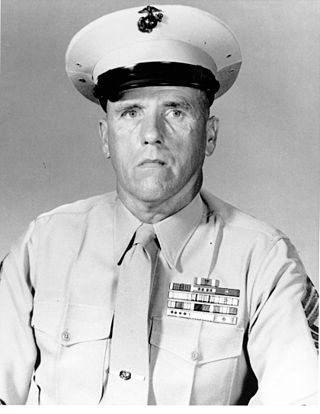
Thomas J. McHugh was a United States Marine who served as the 3rd Sergeant Major of the Marine Corps from June 29, 1962, to July 16, 1965.
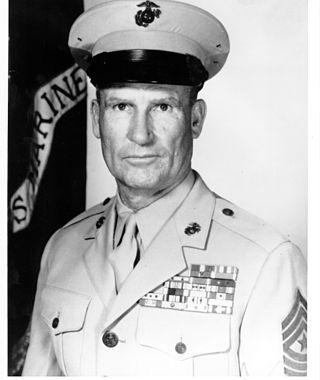
Joseph W. Dailey was a United States Marine who served as the 5th sergeant major of the Marine Corps from August 1, 1969, until he retired from active duty on January 31, 1973. Dailey was the oldest living former sergeant major of the Marine Corps when he died in 2007. Dailey served in combat in three wars—World War II, the Korean War, and the Vietnam War—earning the Silver Star for actions during the Battle of Okinawa and the Navy Cross and the Bronze Star Medal for heroism in Korea. He was a member of the Church of Jesus Christ of Latter-day Saints.

Lewis G. Lee is a retired United States Marine who served as the 13th Sergeant Major of the Marine Corps from 1995 to 1999. He retired from active duty in 1999 after over 31 years of service. He was the last Sergeant Major of the Marine Corps to serve in combat in the Vietnam War.
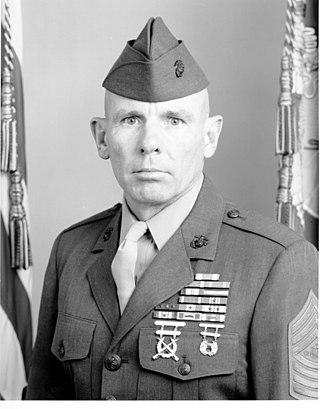
Harold G. Overstreet is a retired United States Marine who served as the 12th Sergeant Major of the Marine Corps from 1991 to 1995.

David W. Sommers is a retired United States Marine who served as the 11th Sergeant Major of the Marine Corps from 1987 to 1991.

Robert Earl Cleary was a United States Marine who served as the 10th Sergeant Major of the Marine Corps from 1983 to 1987. He served in the Marine Corps for 36 years, including seeing combat in both the Korean War and the Vietnam War. For his actions in Vietnam, he was awarded the Silver Star, the Navy Commendation Medal, and two Purple Hearts. He was the last Sergeant Major of the Marine Corps to have served in the Korean War.

Leland D. Crawford was a United States Marine who served as the 9th Sergeant Major of the Marine Corps from 1979 to 1983.
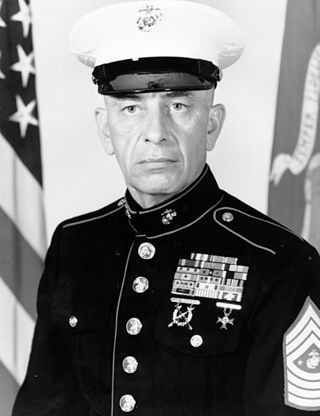
Henry H. Black was a United States Marine who served as the 7th Sergeant Major of the Marine Corps from 1975 to 1977.
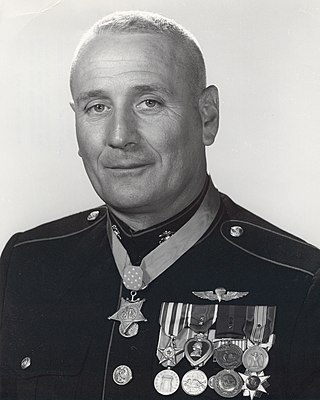
Jimmie Earl Howard was a Marine Corps staff sergeant when he led an eighteen-man reconnaissance patrol in a fierce battle against a battalion of Viet Cong in June 1966. As a result of his heroic actions, Howard became the sixth U.S. Marine to be awarded the nation's highest honor for heroism in combat in Vietnam. The Medal of Honor was presented by President Lyndon B. Johnson in White House ceremonies on August 21, 1967.
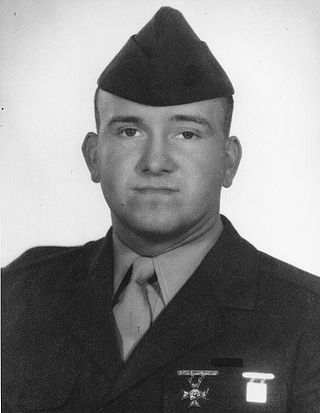
Karl Gorman Taylor Sr. was a United States Marine Corps staff sergeant who was killed in action during his second tour of duty in the Vietnam War. He was posthumously awarded the Medal of Honor, the nation's highest military decoration for valor, for his heroic actions on December 8, 1968.
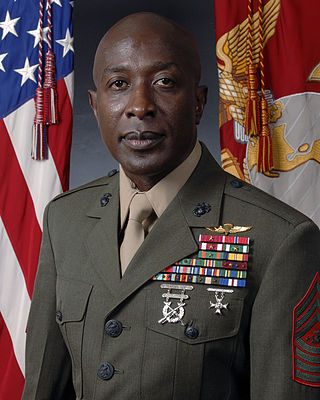
Carlton Wayne Kent is a retired United States Marine who served as the 16th Sergeant Major of the Marine Corps. He succeeded John L. Estrada on April 25, 2007, and was succeeded by Micheal Barrett on June 9, 2011.

Major General Ronald G. Richard is a retired United States Marine Corps officer who last served as the Commanding General of Marine Corps Base Camp Lejeune.
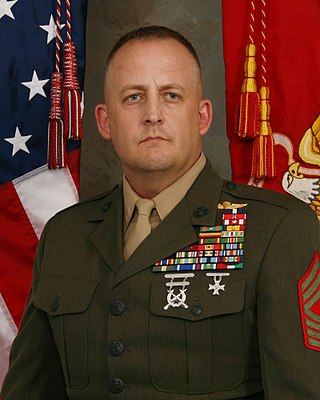
Justin D. LeHew is a United States Marine who served in the War on Terror. He was awarded the Navy Cross for his actions on 23 and 24 March 2003 during the initial 2003 invasion of Iraq. He was hand picked to spearhead the rescue operation and recovery of the U.S. Army's 507th Maintenance Company on 23 March and subsequently was called upon again to take part in the rescue operation of US Army Private Jessica Lynch on 1 April 2003. He is also a recipient of the Bronze Star with Combat Distinguishing Device denoting Valor for his heroic actions from 5 to 28 August 2004 during the Battle of Najaf.
Ground Intelligence Officer is a primary military occupation code of a U.S. Marine Corps intelligence officer. Ground intelligence officers serve as staff officers and commanders in the operating forces and are responsible for analyzing intelligence and planning, deployment and tactical employment of ground surveillance and reconnaissance units. The Ground Intelligence Officer can be a Recon Marine after their training is done.

Bryan B. Battaglia is a retired United States Marine who served as Senior Enlisted Advisor to the Chairman of the Joint Chiefs of Staff, sworn into office on 30 September 2011. He held this position until December 11, 2015.

Ronald L. Green is a United States Marine who served as the 18th Sergeant Major of the Marine Corps. He succeeded Micheal Barrett on February 20, 2015, and relinquished the post to Troy E. Black on July 26, 2019. As the Sergeant Major of the Marine Corps, Green was the highest-ranking non-commissioned officer in the United States Marine Corps. Green retired during the summer of 2019.

Troy E. Black is a United States Marine who has served as the 5th senior enlisted advisor to the chairman since November 3, 2023. He was the 19th sergeant major of the Marine Corps from July 2019 to August 2023.






















